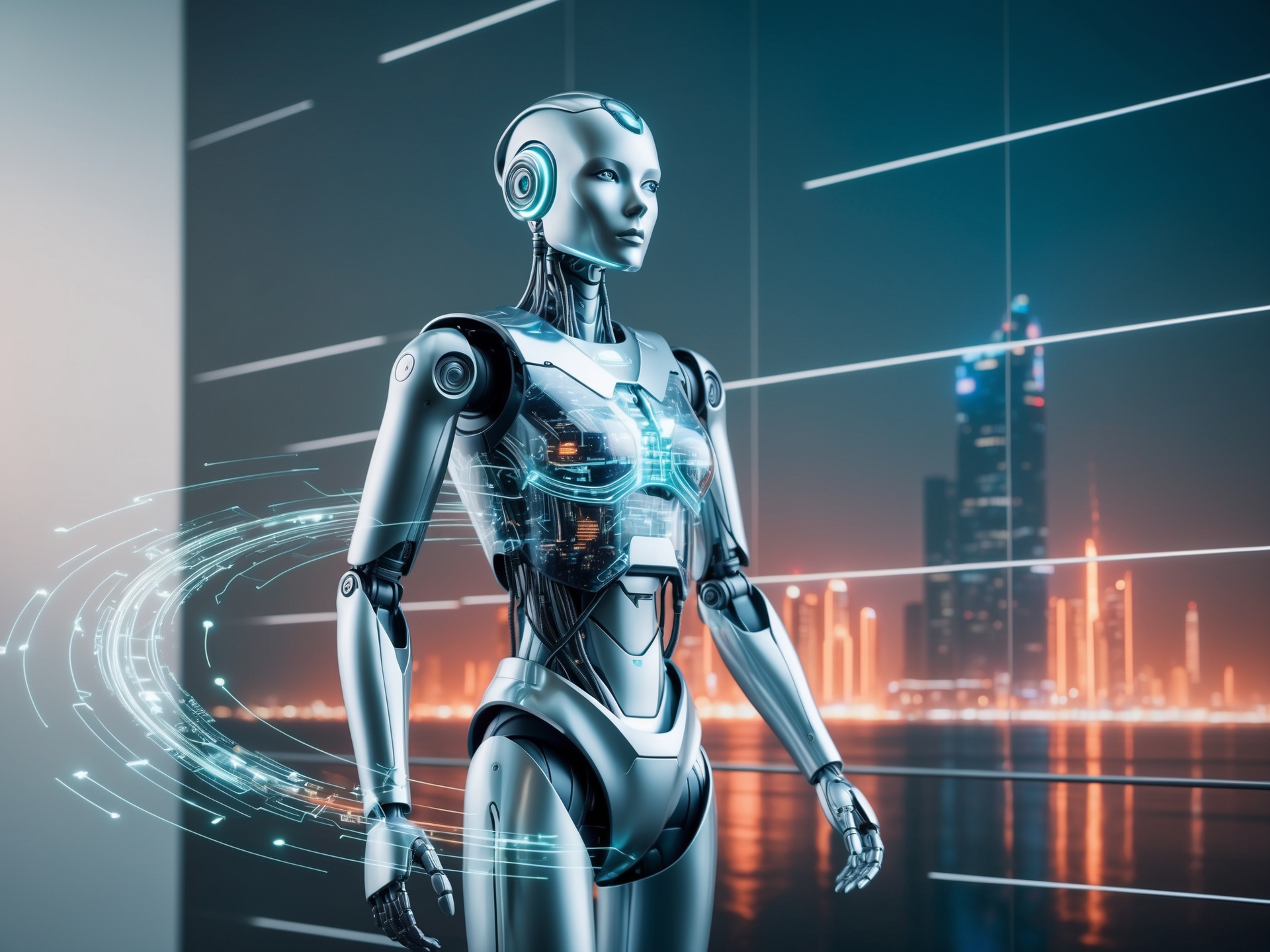The Future is Now: Exploring the Impact and Potential of Artificial Intelligence
Super / June 21, 2024

Introduction:
Artificial Intelligence (AI) is no longer a concept confined to science fiction; it has become an integral part of our daily lives and an indispensable tool in various industries. From voice assistants and recommendation systems to advanced robotics and autonomous vehicles, AI is transforming the way we live, work, and interact with the world. In this blog, we will explore the impact and potential of AI, its current applications, and what the future holds for this groundbreaking technology.
The Rise of Artificial Intelligence:
AI has made significant strides over the past few decades, evolving from simple rule-based systems to sophisticated algorithms capable of learning and making decisions. This rapid advancement is driven by the convergence of several factors:
- Big Data: The explosion of data generated by digital devices and online activities has provided a rich resource for training AI models.
- Advanced Algorithms: Innovations in machine learning, neural networks, and deep learning have enabled AI systems to process and analyze vast amounts of data with unprecedented accuracy.
- Computing Power: The development of powerful GPUs and cloud computing has significantly increased the computational capabilities available for AI research and deployment.
Current Applications of AI:
- Healthcare:
- Diagnosis and Treatment: AI algorithms can analyze medical images, predict disease outcomes, and suggest personalized treatment plans.
- Drug Discovery: AI accelerates the process of discovering new drugs by analyzing biological data and predicting potential drug candidates.
- Finance:
- Fraud Detection: AI systems can detect fraudulent transactions by analyzing patterns and anomalies in financial data.
- Trading: Algorithmic trading systems use AI to make high-frequency trading decisions based on market data.
- Retail:
- Personalized Recommendations: E-commerce platforms use AI to recommend products based on user preferences and behavior.
- Inventory Management: AI optimizes supply chain and inventory management by predicting demand and minimizing waste.
- Transportation:
- Autonomous Vehicles: Self-driving cars use AI to navigate, make decisions, and improve safety on the roads.
- Traffic Management: AI analyzes traffic data to optimize traffic flow and reduce congestion.
- Customer Service:
- Chatbots: AI-powered chatbots provide instant customer support, handling inquiries and resolving issues.
- Sentiment Analysis: AI analyzes customer feedback to gauge satisfaction and improve service quality.
The Future of AI:
The future of AI holds immense promise, with potential advancements and applications that could revolutionize various aspects of our lives:
- Enhanced Human-AI Collaboration:
- AI will increasingly work alongside humans, augmenting our capabilities and enabling us to tackle complex problems more effectively.
- Ethical AI:
- As AI becomes more pervasive, there will be a growing focus on developing ethical AI systems that are transparent, fair, and accountable.
- AI in Education:
- AI-powered educational tools will provide personalized learning experiences, adapting to individual student needs and improving educational outcomes.
- AI for Environmental Sustainability:
- AI will play a crucial role in addressing environmental challenges by optimizing energy usage, predicting natural disasters, and supporting conservation efforts.
- Advanced AI Research:
- Ongoing research in areas such as general AI, quantum computing, and neuromorphic computing will push the boundaries of what AI can achieve.
Challenges and Considerations:
While the potential of AI is vast, it is essential to address several challenges and considerations:
- Data Privacy and Security:
- Ensuring the privacy and security of data used by AI systems is paramount to prevent misuse and protect individuals' rights.
- Bias and Fairness:
- AI systems must be designed to avoid bias and ensure fairness, particularly in critical areas such as hiring, lending, and law enforcement.
- Job Displacement:
- The automation of tasks by AI may lead to job displacement, necessitating strategies for workforce retraining and adaptation.
- Regulation and Governance:
- Effective regulation and governance frameworks are needed to oversee the development and deployment of AI, ensuring it is used responsibly and ethically.
Conclusion:
Artificial Intelligence is a transformative technology that holds the potential to reshape our world in profound ways. As we continue to explore and harness its capabilities, it is crucial to approach AI development with a sense of responsibility, ensuring that its benefits are realized equitably and ethically. The future of AI is bright, and with thoughtful innovation and collaboration, we can unlock its full potential to create a better, more connected world.